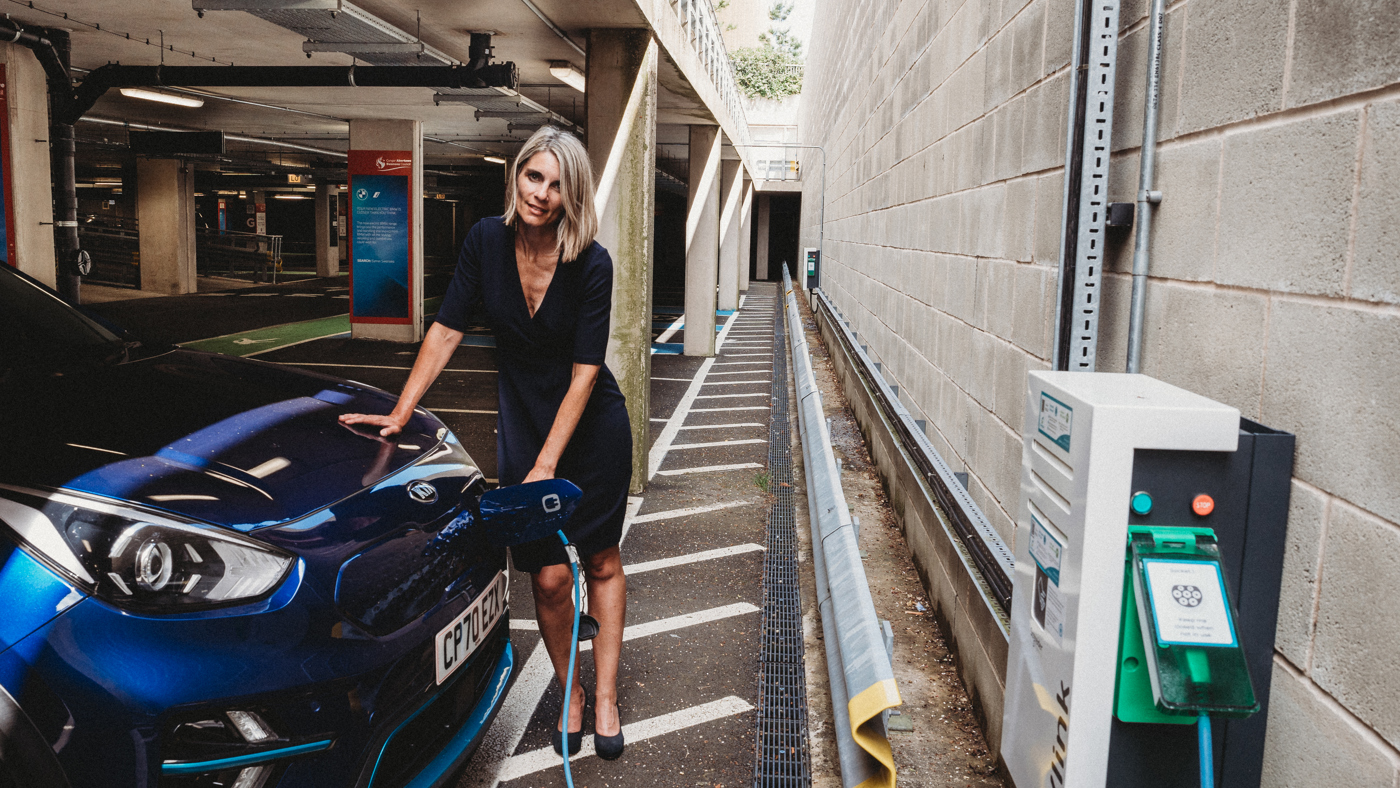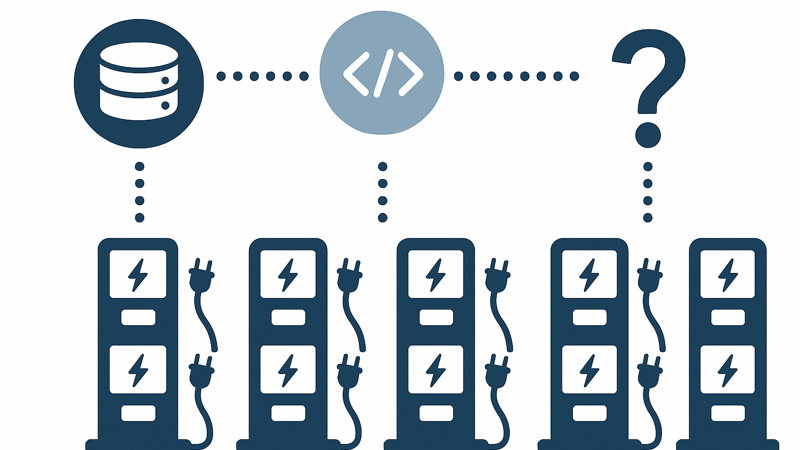
The UK Public Charge Point Regulations 2023
The Public EV Charge Point Regulations are finally coming into play in the UK as of November 24th this year. But what are they exactly, and how do they apply to anyone offering EV charging available to the public (barring exemptions)?
With £10,000 fines per non-compliant charger, we'll break down the regulations and how you can stay compliant in our post below.
Regulations Guide
The penalty
As we're sure you've heard, the potential penalty for non-compliance is a huge reason why public charge point owners need to take notice of these changes.
With fines of £10,000 per non-compliant charger, the consequences for falling short could be damaging at best, and potentially crippling to smaller businesses. But while it means that charge point owners need to take the regulations seriously, there's still plenty of support available to remain compliant.
Exemptions
While the regulations broadly apply to most groups offering publicly-available EV charging, there are a few notable exceptions. The exemptions apply to three main groups; charities, 'micro-businesses', and government-owned organisations.
As for a 'micro-business', it's defined as having the following@
-
Fewer than 10 employees.
-
A turnover of £632,000 or less.
-
Assets of £316,000 or less.
-
And uses less than 100,000 kWh of electricity/293,000 kWh of gas per year.
If your business fits with each of those qualifiers, then you don't have to worry about facing possible fines for non-compliance.
Still, it's always best practice to follow industry standards as best as you can, to make sure those charging on your sites have a positive experience.
It's always a good idea to get ahead, so fitting your installations with the means to meet these requirements keeps you covered for potentially outgrowing the 'micro-business' tag. Onboarding a partner can help with this can mean you're not left in a mad scramble for compliance if your organisation does outgrow the 'micro-business' definition, or if you decide to open up your private EV charging site to the public to earn back ROI.
What constitutes a public charge point?
It may seem obvious at first glance, but looking at the official wording of what constitutes a public charge point is important to understanding where your site stands. According to the Government summary, a public charge point includes:
-
Charge points with restricted access during specific hours.
-
Charge points located in public car parks, regardless of whether the car park is open to everyone or only those making purchases.
Conversely, public charge points do not include:
-
Workplace charge points intended exclusively for employees, contractors, and workplace visitors (excluding individuals intending to make purchases).
-
Charge points restricted for exclusive use by specific vehicle manufacturers, specific occupations, or residents and visitors of residential premises.
What are the regulations?
Contactless Payment: Effective Date 24th November 2024
Contactless payment provides drivers with a simple way to start a charge without, needing RFID cards or apps.
All new Public Charge points from November 2024 over 8kW and existing charge points over 50kW will need this, with existing ultra-rapid chargers requiring retrofitting.
For private chargers that are opened up to public use inside these power ratings, owners will have 12 months to install contactless terminals from the date they begin being used by the general public.
Clenergy EV Solution: Clenergy can pair a contactless payment terminal to any OCPP charge point to provide compliance.
We are also able to pair one payment terminal to multiple charge points.
99% Reliability: Effective Date 24th November 2024
Rapid charge points (Above 50kw) are required to stay active and ready for use 99% of the time during a reporting period.
Charge point owners are required to keep track of these rates, and send reliability reports to the Department for Transport (DfT) annually.
Clenergy EV Solution: Clenergy EV monitors the reliability of charge points and provides owners alerts of any known issues to actively manage their charge points.
Data from the charge points is available via API and will be sent to the DfT annually.
24/7 Driver Support: Effective Date 24th November 2024
All public CPOs are mandated to provide and advertise a free, manually-staffed 24/7 helpline for EV drivers. This helpline number must be clearly displayed on the charging points or nearby.
Clenergy EV Solution: Clenergy EV provides 24/7 helpdesk services as part of our Pro Licence. Details of the helpdesk calls will be automatically reported to the DfT.
Open Data: Effective Date 24th November 2024
The new regulations call for all public charger owners to hold and make publicly available charger data, such as location, availability, and more. The data must be accurate, and available in a machine-readable (OCPI) format.
This data must also be accessible to government bodies, distribution network operators, transmission owners, and electricity system operators. On one hand, the open information would help in electricity system planning, and on the other hand, it would help EV drivers easily decide if the charging point best fits their needs and help them avoid inactive chargers.
Clenergy EV Solution: Clenergy EV provides data to the charge points available via OCPI as standard.
Pricing Metrics: Effective Date 24th November 2024
Operators of Public charge points must display the total cost of the charging session on their charge points. This should include connection fees shown in pence per kilowatt-hour (p/kWh). The price can be displayed on the charging point itself or through separate devices such as EV driver apps or an on-time payment website, provided drivers do not need to sign up to pay for any additional fee. The measure is aimed at making sure EV drivers receive absolute price transparency for their charging sessions
Clenergy EV Solution: Clenergy EV provides full visibility of the cost of charging via its mobile app solution (without the requirement for registration). We are also able to push payment information to some capable charge points that have a screen to display this information or some contactless payment terminals.
Roaming: Effective Date 24th November 2025
Roaming means that 3rd party operators would be able to start a charge on a public charge point. For the EV driver, it would simplify the experience of using one app across charge points from multiple charge point operators.
The regulation requires each public charge point to provide access to at least one 3rd party roaming provider.
Clenergy EV Solution: Clenergy has integrated to multiple 3rd party charging apps like Octopus, DNV and Paua to name a few. Owners of charge points are able to select who they would like to use their charge points.
Despite the concerning possibility of costly fines, the public regulations aren't something to be scared of.
In fact, they're exactly what we need in order to change attitudes towards EV charging, and deliver a reliable and easy experience for EV drivers.
If you're at a loss as to whether your sites are compliant, or are simply looking for a partner to have on your side come the end of this November, our regulations team is available for a free, low-commitment consultation via the form below.


